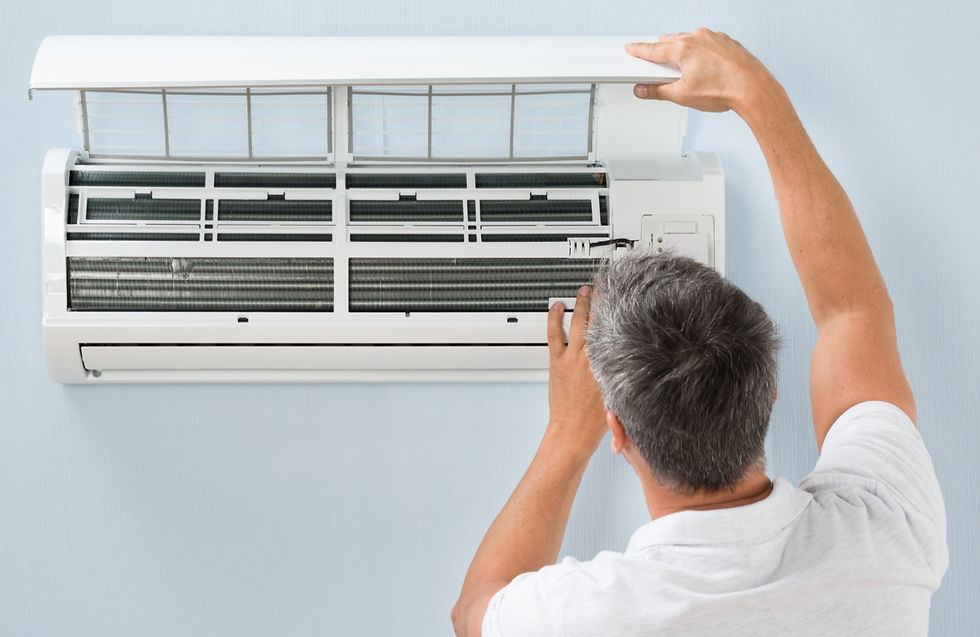Dangerous Heat Waves
- Team R72
- Jun 8, 2021
- 4 min read
America's National Weather Service issued Excessive Heat Warnings and Heat Advisories the first week of June 2021, with expectations for it to continue further into the month. Heat-related illnesses are more likely to develop as the temperatures soar.
Past statistics are staggering. According to the Centers for Disease Control and Prevention, over 600 people are killed each year in the United States from heat. They provide the following advice:
Avoid being in the sun outdoors between 10 am and 4 pm.
Stay hydrated - take frequent sips. By the time you feel thirsty, you are dehydrated.
Use/get to air conditioning! Fans may not be adequate!
Wear appropriate clothing
Don’t stay in a car for extended periods.
What causes a heat wave?
Heat waves are the result of trapped air. Normally air circles the earth in large prevailing winds; however it is allowed to warm to uncharacteristic temperatures due to sunlight if it is trapped over one region. The air is often trapped due to high-pressure systems. The trapped air is unable to rise into the cooler upper atmosphere, therefore preventing precipitation. Heat waves typically last two or more days and are generally 10 degrees or more above average. Think about the air trapped inside an oven and how hot it becomes.
A heat wave is a period of excessively hot weather, accompanied by high humidity, especially in oceanic climate countries. While definitions vary, a heat wave is usually measured relative to the typical weather in the area and relative to average temperatures for the season.
Heat waves can be pretty dangerous, especially when the public is not prepared. For example, in July 2012, over 8000 temperature records were broken in the United States, and many deaths were attributed to the heat waves.
In 2003, a mega heat wave in Europe killed around 70,000 people. In 2010, 56,000 people were also killed by a mega heat wave in Russia. It also ruined the Russian wheat crop causing food riots and uprisings in 2011.
Why are heat waves so dangerous?
Heat waves can kill via dehydration caused by heavy sweating, altered sodium and potassium concentrations in the blood, heart, and nerve cells, and breathing or heartbeat may suddenly stop.
Who is more vulnerable to heat waves?
Disabled
Pregnant
Infirm
Poor
Displaced
Homeless
Children
Elderly
Athletes
Outdoor workers
Manual workers
What are the symptoms of heatstroke?
Confusion
Painful Involuntary muscle spasms
Heat exhaustion
Flushed face
Conversation becomes incoherent
Widespread inflammation
Dilation of many tiny blood vessels
Vomiting
Diarrhea
Rapid heartbeat
Dizziness
What should you do if someone shows signs of heatstroke?
Test them for confusion by asking simple questions like where are you?
Put them in the shade.
Pour bottled water over clothing and hair.
Provide water for them to sip
Call the doctor or 911
Cool off with wet washcloths on the wrists and neck
Take a cool sponge bath or shower.

Use a spray bottle and spritz cool water on pressure points to bring the body temperature down.
During heat waves, tune to an NOAA radio station https://www.weather.gov/nwr/ station listing and listen for weather updates from the National Weather Service (NWS).
How to survive a heat wave while it is happening?

Stay hydrated with plenty of water - even if you are not thirsty.
Never leave children or pets alone in hot vehicles - even for a second
Stay inside during the hottest part of the day (10 am to 4 pm) and limit outside time in the sun.
Don’t exert yourself too much.
If you are outside, wear a hat or carry an umbrella and wear sunscreen.
Don’t drink alcohol, sugary soda, coffee, energy, or caffeinated drinks that dehydrate you.
Eat small meals with higher water content and more nutrients.
Check on family, friends, and neighbors.
Properly install window air conditions, sealing any cracks and insulating.
Check a/c ducts for proper insulation and clean filters.
Install awnings, blinds, or light-colored drapes and keep them closed.
Upgrade your windows and weather-strip doors to keep heat out and cool air in.
Make sure your first aid kit is updated and get trained in first aid relief.
Have a plan for your family and discuss heat safety precautions.
Check the contents of your emergency disaster kit in case a power outage occurs.
Be aware of weather forecasts and upcoming temperature changes.
Power outages are common during heatwaves because the need for A/C puts too much pressure on the grid. It is wise to have a standby generator.
While extreme cold is also dangerous, heat waves become life-threatening more quickly if proper precautions are not taken. In recent years, excessive heat has caused more deaths than all other weather events, including floods. Of all natural disasters, heat holds the highest 10-year average of fatalities.
If your home is too hot, go to the library or other designated public shelter. Text SHELTER plus your ZIP code to 43362 (4FEMA) to find the nearest shelter to your area (example: shelter 12345)
An Excessive Heat Warning is issued when a heat index, or “real feel,” of 105 degrees is expected to last for two hours or more. Little to no overnight cooling is expected in the affected areas.

The public is urged to take these warnings and advisories seriously as many people will be outdoors attending graduation ceremonies during the heat wave. Also, many are out participating in recreational activities after an extended time of being shut-in from the pandemic.
Meteorologists watch closely and suspect that more records could be broken with highs being reached even in the mountains. They suggest limiting your outdoor activities, especially during the afternoon and early evening hours when temperatures are at their peak.
Commenti